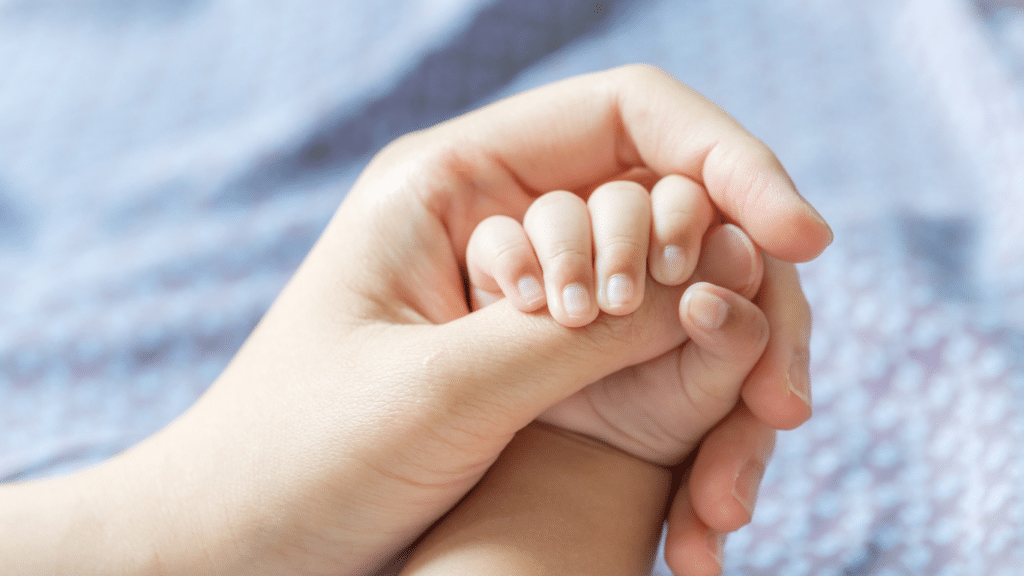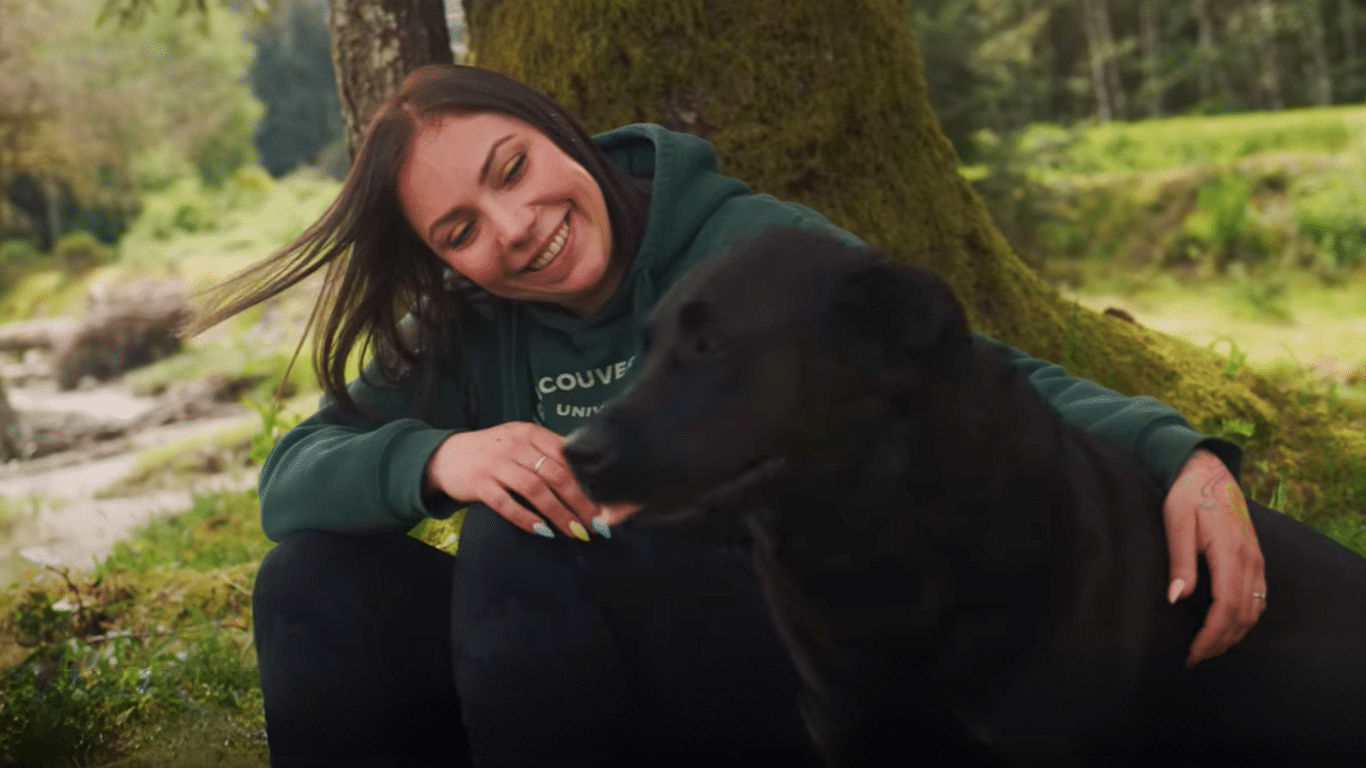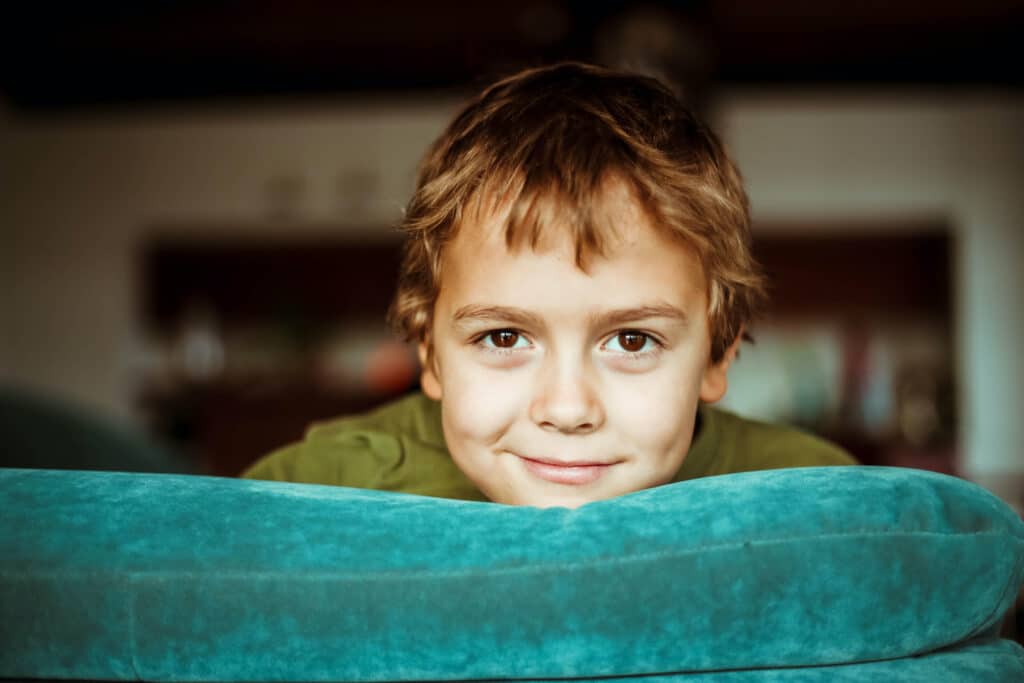Over half a decade has passed since our emotional initiation into open adoption.
I still remember every last detail, but I no longer fall to pieces thinking about our journey. Of course I’ll never forget meeting Victor’s birthmom and dad for the first time, our hearts full of hope and fear while, oblivious to our anxiety, the sun sparkled outside the agency window. But for the first time, I can look back and feel a sense of calm and acceptance over the way our adoption unfolded.
Out of the vortex
I no longer dwell on the sweltering summer day we stumbled down the hospital hallway, flowers in hand, hearts pounding through our shirts. The image of a room full of people, a weeping birth mother, and tiny gurgling bundle in the middle of the bed is etched in my psyche, but the confusing blend of grief, joy, anxiety, and bewilderment has faded.
I no longer mentally replay the frenetic birth family visits we hosted in our oven-like home, fans blowing overheated air around the room, while a tiny baby was passed gingerly from parents to birth parents to grandparents while we all choked back tears.
I no longer feel knocked down when I think of four grandparents dispensing advice in all directions: “Close the adoption,” said one. “Let’s take a break,” said another. “I can’t believe I’ve lost my first grandson,” said another, while the last said, “We can’t wait to see you at Christmas!” The birthparents themselves seemed lost, voiceless inside the vortex of their parents’ wishes.
But so much has changed in five and a half years.
Realistic relationships
I no longer worry incessantly about Victor’s birth parents, because they’ve grown so much. They are almost unrecognizable from the two fresh-faced 15-year-olds we met over five years ago with a life-altering decision to make. I often think how my own life has changed with the shock and thrill of late motherhood, but my adjustment seems puny when compared with the obstacles the birth parents have overcome.
In a nutshell, they had a baby, placed him for adoption, graduated from high school, applied for and won sports scholarships to universities miles from home, parted ways as a couple, sustained injuries, lost scholarships, got healthy, worked and saved, moved again, entered new relationships, moved cities several times, trained and competed again, and got back into school. They are tough, adaptable, and courageous.
I no longer expect to be close to Victor’s birthmom. Her life is largely unknown to me. She keeps her cards close to her chest, sending only the most carefully curated photos or news. When she emails, it’s for one reason: to arrange a visit or Skype with Victor. Her hopes and dreams, grief and struggles, and even her daily routines are a mystery. And that’s okay. I’m not her mom, her sister or her best friend. I’m her son’s mom. My role is to lay the groundwork so she and Victor can form a lifelong relationship.
Adoption is part of all of our lives, forever
I no longer think the birth parents will disappear from our lives as they “get on with their own.” Amid all of the chaos of the last five years, they’ve managed to stay in touch with us and show how much they care. This summer, they pulled off the seemingly impossible feat of visiting Victor together and spending the day with him. Adoption is not something for any of us to overcome: it’s part of all of our lives forever.
I no longer believe that adoption can be separated from regular family life. It flows through our family – surging, ebbing, staying still, but always part of who we are. Adoption and culture also play a huge role in the way I live and interact with people. I stand up for adoption and racial diversity everywhere I go because it’s personal. I engage more meaningfully with people of all backgrounds, and some of my deepest friendships are fellow adoption travelers. Adoption has added meaning and depth to my life. It’s part of who I am, and I no longer want to imagine what my life would be like without it.
Charlotte Taylor is a mother in an open adoption with her son’s birth parents.





